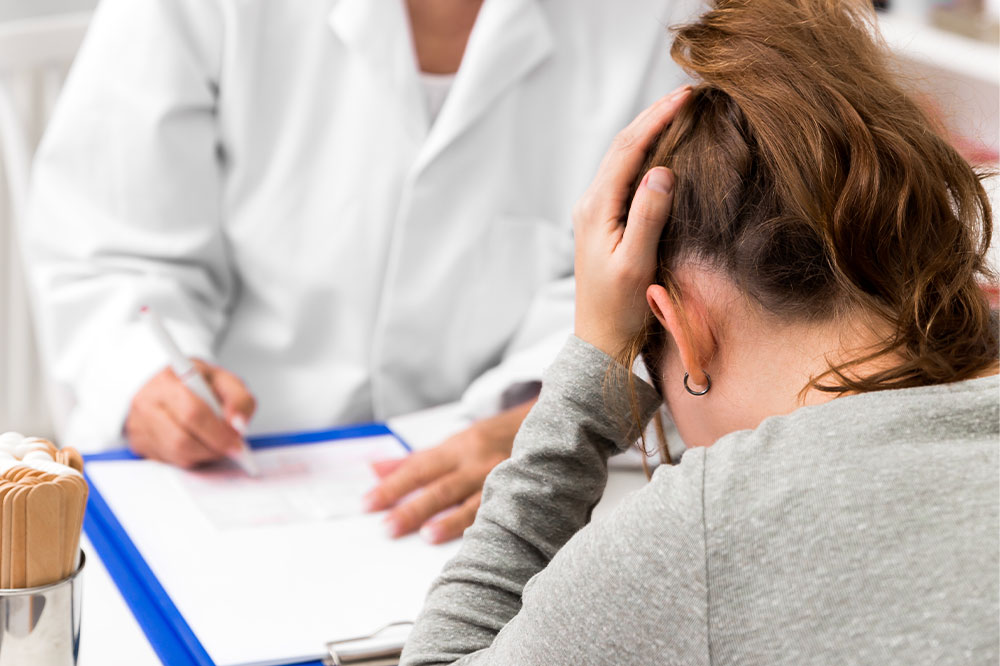
Bipolar disorder – Causes, signs, and other factors
Bipolar disorder is a mental health condition typically marked by drastic shifts in mood from depression to mania. While challenging to manage, several treatments and strategies can help with its signs and symptoms. Bipolar disorder is not rare, and about five million American adults suffer from it. Its episodes usually last from a few days to several weeks or longer. Read about the causes, symptoms, and treatments for bipolar disorder to manage the condition properly.
Causes
Unfortunately, there is no clarity on the exact cause of bipolar disorder. However, multiple factors may have a role to play. These include:
Biological differences
Generally, people with bipolar disorders develop physical changes in their brains. While the prominence of these changes is uncertain, they can eventually help ascertain the causes.
Genetics
Bipolar disorder is prevalent in people who have a first-degree relative with the condition. Research is ongoing to determine the genes responsible for bipolar disorder.
Signs and symptoms
The bipolar disorder signs can make it challenging to go on with everyday life. It can have a negative influence on work and relationships. Some common symptoms associated with bipolar disorder are as follows:
Mania
A few symptoms linked to mania are feeling excited or happy, even if things are not going too well, being filled with innovative and fresh ideas, quickly transitioning between different concepts, experiencing rapid thoughts, speaking rapidly, hearing auditory hallucinations, displaying heightened irritability, feeling significantly more self-assured than usual, struggling to concentrate and easily getting distracted, having difficulty sleeping or feeling averse to sleep, believing in exaggerated capabilities, making impulsive or significant decisions without careful consideration, and engaging in atypical behavior with potential consequences, such as:
Engaging in excessive spending
Pursuing multiple casual sexual encounters suddenly
Participating in gambling activities
Making imprudent choices
Hypomania
It is similar to mania but usually results in milder symptoms.
Depression
Some prevalent depression signs are as follows:
Experiencing a depressed mood
Having decreased energy levels and feelings of fatigue
Feeling hopeless or pessimistic
Experiencing guilt, worthlessness, or a sense of helplessness
Losing interest in previously enjoyable activities
Struggling with concentration, memory, or decision-making
Feeling restless or irritable
Dealing with disrupted sleep patterns, either excessive or insufficient sleep
Experiencing changes in appetite or eating habits
Unintentional changes in weight
Having thoughts of death or suicide or engaging in suicide attempts
Psychosis
In some bipolar disorder cases, individuals may display psychotic signs when experiencing a severe episode of depression or mania. Some symptoms associated with psychosis are delusions and hallucinations.
Treatments for bipolar disorder
It is possible to treat bipolar disorder, but it is a long-term condition that demands continual care. Treatment may be challenging in people who experience four or more episodes in a year, but they can make a noticeable difference in the condition. Doctors usually recommend a combination of talk therapy, prescription treatments, lifestyle changes, professional attention, and continuous support from friends and family. Most people with this condition do well with the correct treatments, so it is vital to seek help at the earliest. Here are some common types of talk therapies your doctor may advise:
Cognitive behavioral therapy
Family-focused therapy
Interpersonal and social rhythm therapy (IPSRT)
Psychoeducation
Other treatment options for bipolar disorder may include electroconvulsive therapy, acupuncture, and vitamin supplements.




